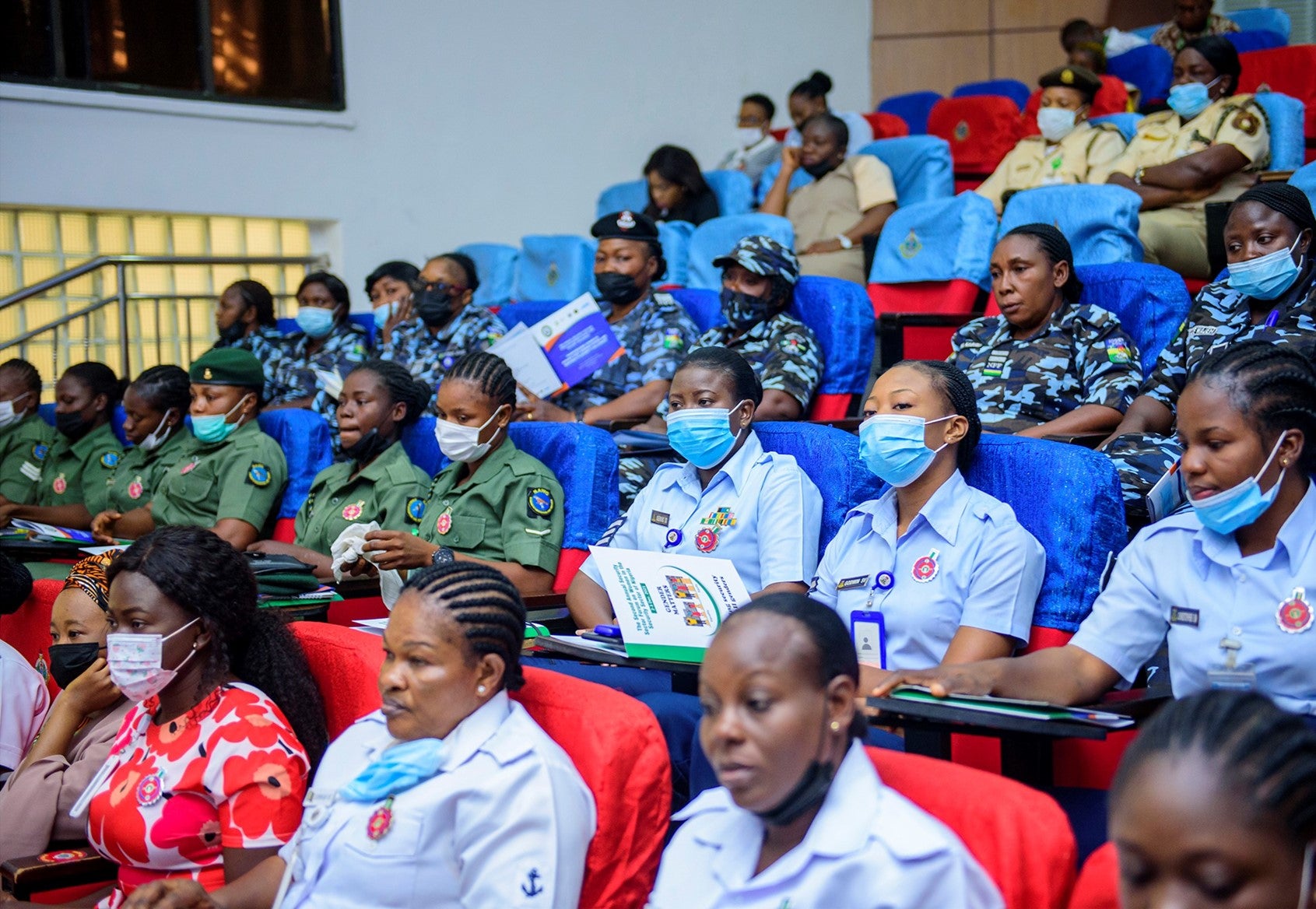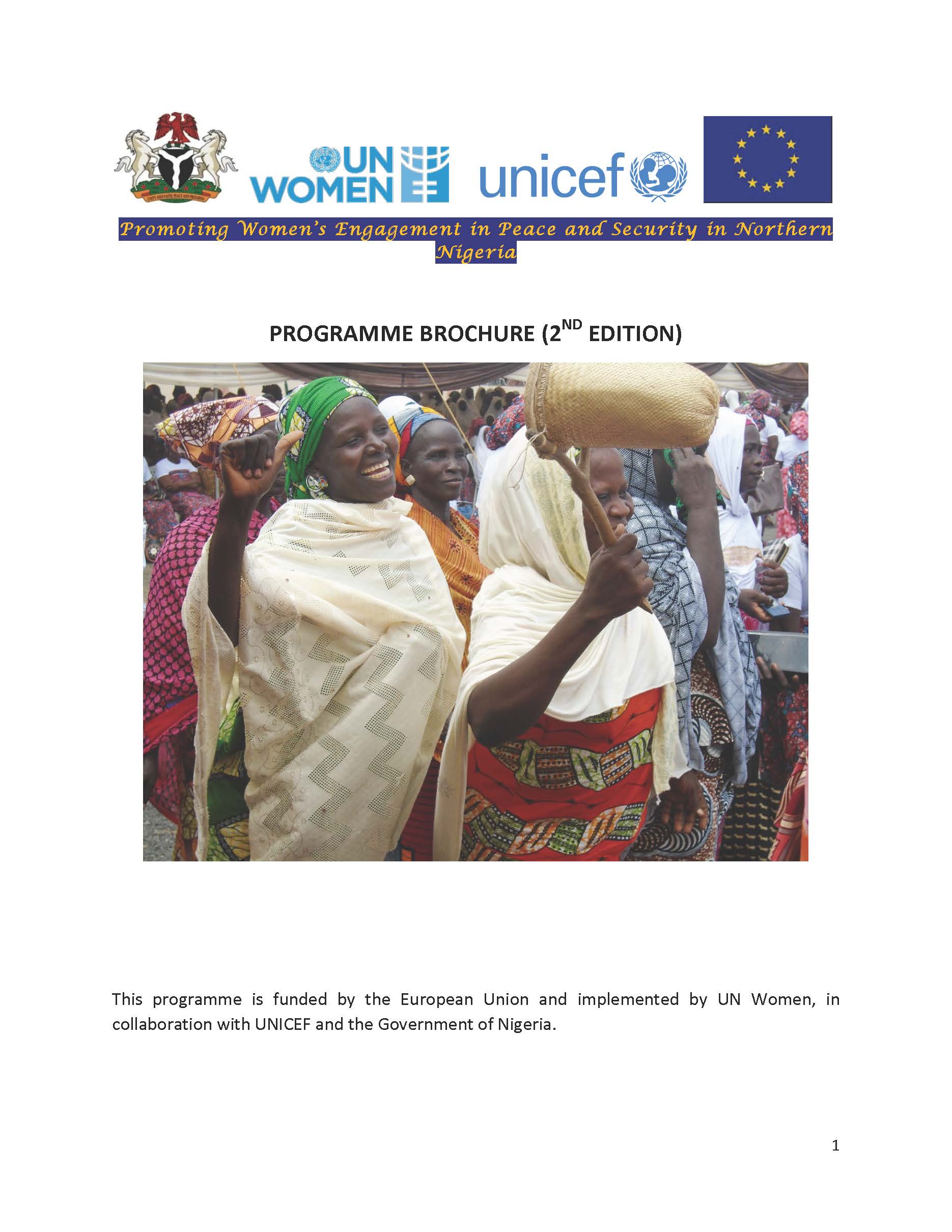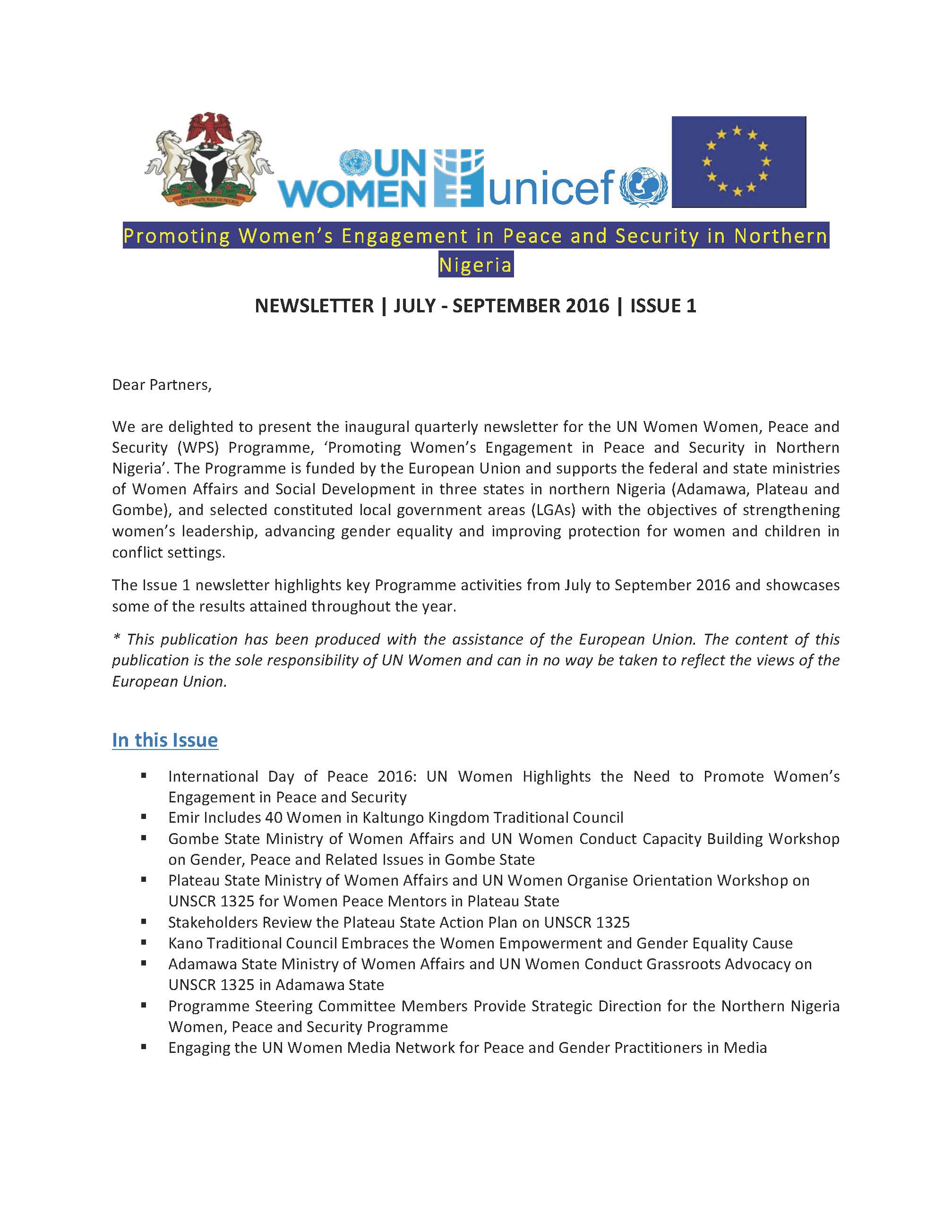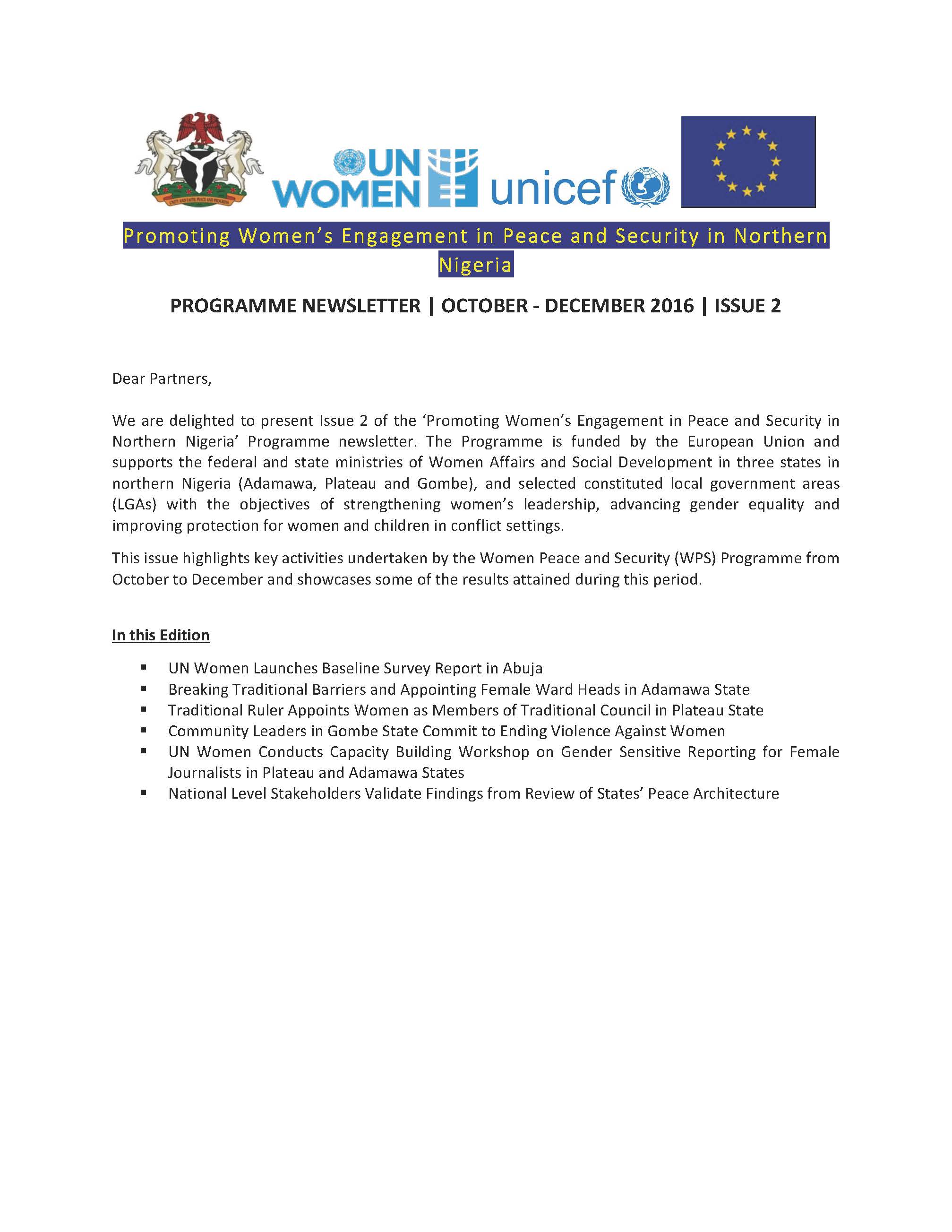
Women Peace and Security (WPS)

The Programme on Women, Peace and Security in Nigeria was designed to achieve the broad goal of gender-inclusive and sustainable peace in Nigeria. The programme’s specific objectives are: Increase women’s effective participation in peace and security processes, peace negotiations, conflict prevention and resolution, and improve public perception of the role of women in peace and security at all levels. The Programme target states are Bauchi, Benue and Abuja, the Federal Capital Territory.
The programme also documented positive and innovative outcomes. For example, the development and implementation of Nigeria’s 1st and 2nd National Action Plan (NAP) on UNSCR 1325, launched in 2013 and 2017, respectively. This is in addition to supporting its localization at state levels through State Action Plans (SAP) and Local Action Plans (LAP). Currently, SAPs exist in 14 states of Nigeria. Moreover, the NAP reinforced adoption of gender laws and other policies, including the Gender and Equal Opportunities Bill (GEOB) and VAPP Act.
Similarly, UN Women provided capacity building and institutional strengthening on gender mainstreaming and implementation of the provisions of UNSCR 1325 to Government Ministries Department and Agencies (MDAs), Judiciary, Security Institutions (Armed Forced of Nigeria, Police and Nigeria Security and Civil Defence Corps), Traditional Institutions, Civil Society Organizations, Women-Led Organisations and Media. A network of Women Mediators and HeForShe Male Gender Champions was established in the target states, actively engaged in gender-sensitive peacebuilding initiatives at all levels.
Project on Enhancing Gender Responsive Security Sector Reform and Strengthening Community-Security Relations
The project “Enhancing Gender Responsive Security Sector Reform and Strengthening Community-Security Relations” was designed in response to gaps identified in women’s representation in the security sector and the broader need for a gender-responsive approach to security operations. This project aims to enhance gender-sensitive security sector and foster community dialogue between women affected by conflict and security sector actors through three pillars of engagement:
a) Strategic level - The project seeks to put in place an enabling gender-sensitive policy environment including through policy dialogue and policy development;
b) Capacity Building - The project supports capacity building for security personnel through the development and roll-out of relevant training curriculum and materials, particularly for front-line personnel;
c) Strategic Collaboration - The project supports meaningful engagement and collaboration by affected women and women’s organisations with security sector institutions and personnel in community security in the two target areas in the North East (Borno and Yobe states).
The project contributed to the attainment of the following milestones: Capacity building and institutional strengthening of security agencies in Nigeria, particularly the Armed Forces of Nigeria, Nigeria Police Force and the Nigeria Security and Civil Defence Corps, by deepening the knowledge of officers on Gender Mainstreaming and the Women, Peace and Security frameworks, including the key pillars of UNSCR 1325 and the attendant Nigerian National and State Action Plans on the Resolution; Establishment of Security Sector Gender Reference Group, comprising of Gender Advisers and Focal Points from all security sector institutions. The Group serves as an inter-agency platform for identifying strategic issues and gaps (policy and programming) regarding the gender-responsive security sector in Nigeria. Moreover, the project supported the development of gender policy for the Armed Forces of Nigeria and Nigeria Security and Civil Defence Corps, officially launched on 31st March 2021 and 15th July 2021, respectively.


